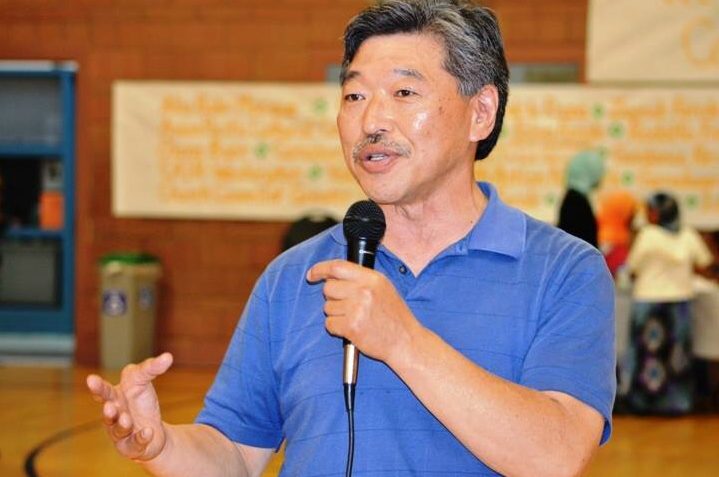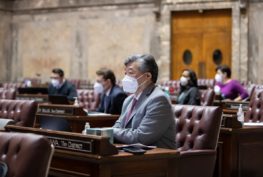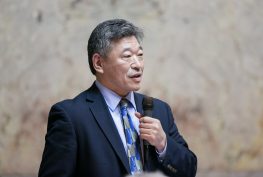“Advantages of a State-Chartered Bank in Local Energy Development”
Senator Bob Hasegawa, Washington State Legislature, Olympia WA
Tuesday, December 16th at 12:30 PM • Port Townsend Community Center
Ideas presented by visiting experts at monthly Jefferson County Energy Lunch Program events have spawned a robust group of new energy activities here – on-going operations like public power and solar installation, continuing programs such as energy efficiency improvement and ammonia fuel development, and one-time projects like wind energy assessment and EV tourism – each of which contributes to economic development of the local energy sector. In a one-hour session prior to the Key Speaker presentation last July, thirteen of seventeen identified local energy activities were publicly reported on by a key officer, director or manager of each activity and since then an outgrowth of the ammonia fuel work, a Green Electricity/Green Fuels Transition Program linked to BPA output, has identified ten new Jefferson County energy development activities so there are now more than two dozen overall.
A common concern among all of these new energy activities is money – money to sustain operations, money to cover program expenses, and money to finance one-time projects. This concern includes a view, verified in a Congressional report just two weeks ago, that national financial markets (i) unfairly support business as usual in established energy markets and (ii) discourage development of new, alternative, and local energy resources. A 402-page report issued on November 18, 2014 by the Permanent Subcommittee on Investigations of the U.S. Senate documents how three of the largest Wall Street banks, Goldman Sachs, Morgan Stanley and JPMorgan hold controlling positions in energy commodities such as coal, uranium, electric power, jet fuels, crude oil and natural gas while at the same time unfairly setting credit requirements and influencing decisions on financial backing for competing energy alternatives.
See: http://online.wsj.com/public/resources/documents/SenateCommodities11192014.pdf
In December, Energy Lunch attendees will hear from a strong Washington State voice for the creation of state chartered banking operations independent of such Wall Street influence, a voice that says “why should we let [a commercial bank] use taxpayer dollars to make money for itself [and] why don’t we create our own state-owned bank [where] the taxpayers will make the money for themselves lend[ing] it back into the community for public purposes like schools, water, and roads.”
The Key Speaker for the Energy Lunch Program in December is State Senator Bob Hasegawa of the 11th Senatorial District of Washington that includes the Beacon Hill neighborhood of Seattle. He will be sponsoring banking legislation that highlights the successful state-chartered Bank of North Dakota, and would create similar state banking operations in Washington.
The presentation by Senator Hasegawa on Tuesday, December 16th will provide, to all those involved in new local energy activities, a glimpse of how successful financing of local energy development already seen in Wildpoldsried, Germany might be replicated with the immense renewable energy resources of Jefferson County in sun, wind, water, and biomass.
Local Sponsors of the Jefferson County Energy Lunch Program are Power Trip Energy, Sunshine Propane, Huber’s INN, the Alaska Power & Telephone Company, the Port of Port Townsend, Frederickson Electric, the Port Townsend Paper Company, and Spyglass Energy Solutions.
See earlier Key Speaker videos: http://www.porttownsendmedia.com/energy/Energy_presentations.html
PLEASE NOTE THAT THE OPINIONS EXPRESSED BY SPEAKERS AND OTHERS AT ENERGY LUNCH EVENTS REPRESENT ONLY THEIR OWN PERSONAL VIEWS AND DO NOT REFLECT THE OPINIONS OF THE ENERGY LUNCH ORGANIZERS OR ANY OF THE LOCAL SPONSORS.


